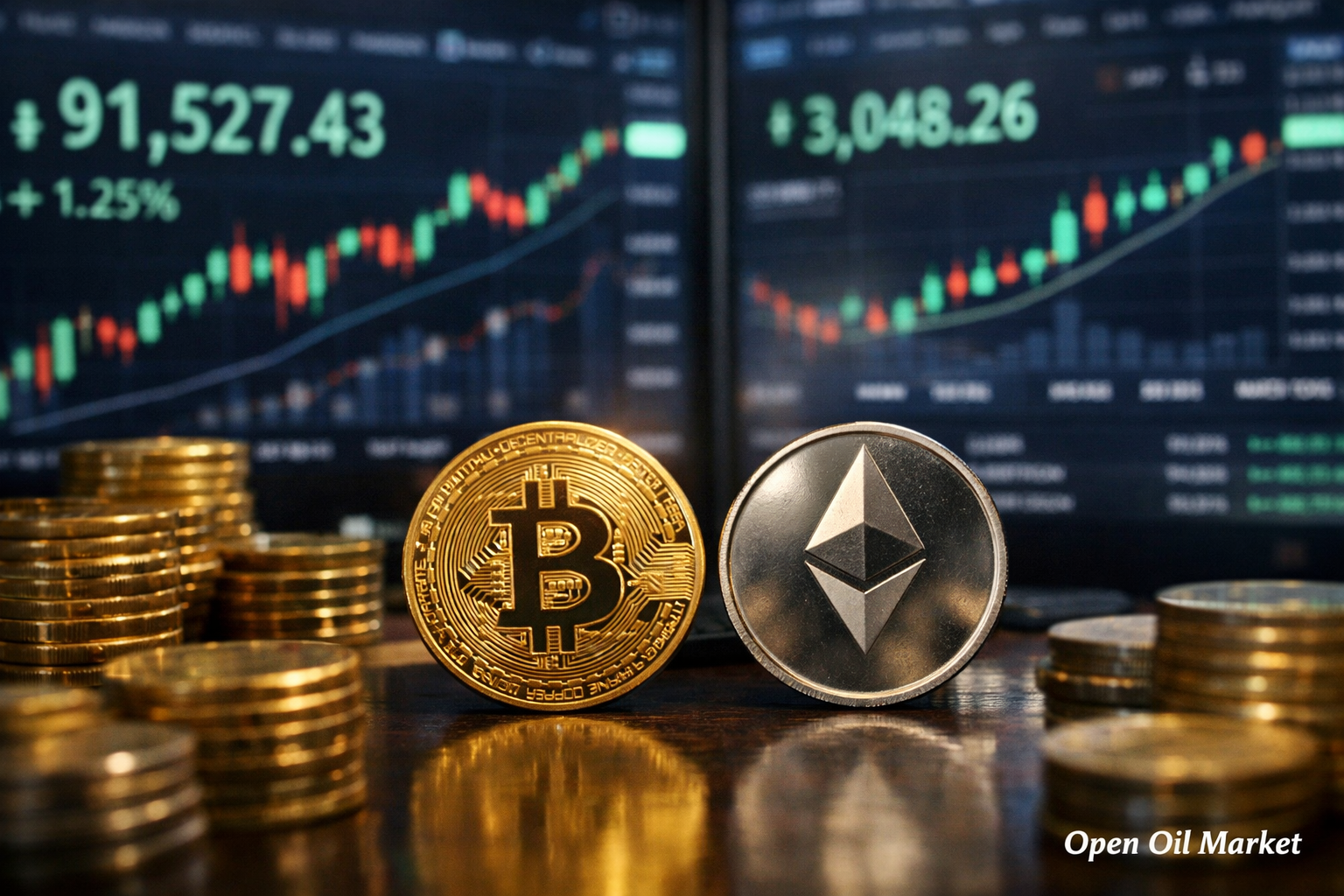
Detailed Review of Economic Events and Corporate Reports on 26 October 2025: Expectations from the Fed and Bank of Japan, Big Tech Reports, Oil at Lows and Gold at Highs
Sunday, 26 October brings a relative calm to global markets; however, it is crucial for investors to remain vigilant ahead of the new week. The focus is on upcoming decisions from leading central banks (the US Federal Reserve and the Bank of Japan), which could set the tone for global financial flows. Concurrently, the third-quarter corporate earnings season continues with reports from the largest US technology giants, poised to significantly influence market sentiment. The price dynamics of commodities remain contrasting: oil is holding at its lowest levels in recent months, while gold is hitting record highs, reflecting increased demand for safe-haven assets. The weekend provides market participants in Russia and Europe with an opportunity to reassess strategies and prepare for a series of important events in the coming week.
Macroeconomic Calendar (MSK)
- All day – Europe: Transition to winter time (clocks set back one hour).
- 18:30 – China: Total profit of industrial enterprises (year-on-year, cumulative) for September.
Asia: Signals from China and Expectations in Japan
- China: The profit of industrial enterprises from January to September is likely to remain in the negative, reflecting weak domestic demand and deflationary pressure. The lack of signs of recovery may prompt Beijing to introduce new economic stimulus measures.
- Japan: The approaching meeting of the Bank of Japan (at the end of next week) is making investors act cautiously. Rising inflation has heightened expectations for a potential tapering of ultra-loose monetary policy. Any hint from the regulator regarding interest rate hikes or changes to bond yield control will significantly impact the yen's exchange rate and Nikkei 225 dynamics; therefore, activity in Tokyo ahead of the central bank's decision will be restrained.
Central Banks and Global Policy: Fed, ECB, and Bank of Russia
- US Fed: At the meeting in early November, the market expects the current interest rate (~5.5%) to be maintained amidst slowing inflation and cooling economic activity in the US. However, the Fed's rhetoric is crucial: any hints from Jerome Powell regarding the future course—whether it is a prolonged pause or preparation for rate cuts in 2026—will significantly influence bond yields, the dollar's exchange rate, and growth stock valuations.
- ECB: The European Central Bank signaled last week that it had reached the peak of its tightening cycle, leaving interest rates unchanged. Inflation in the Eurozone remains above target; thus, the ECB intends to maintain tight financial conditions. New data on GDP and prices will confirm or refute the rationale behind this pause: stable easing of price pressures would support the ECB's decision, while unexpected inflation increases could revive discussions about rate hikes.
- Russia: The Bank of Russia maintained the key interest rate at a high (double-digit) level on 24 October, continuing its fight against inflation and supporting the ruble. For the Russian market, this means the persistence of expensive credit but demonstrates the regulator's commitment to curbing price increases. Investors are likely to factor in the central bank's signals and the new macro data (such as industry statistics) into their corporate profit forecasts and rates.
Energy Markets and Commodities
- Oil: Oil prices remain under pressure. Brent hovers around $65 per barrel, while WTI is close to $60, both at their lowest levels in several months. Expectations of rising supply and eased geopolitical tensions in the Middle East have dampened the risk premium. Concerns over slowing global growth and weak demand also limit upside potential. Should the downward trend continue, OPEC+ countries may discuss new production restrictions to stabilise the market.
- Gold: Gold is trading at historical highs, exceeding $4300 per ounce. The precious metal is in high demand as a “safe haven” amid global uncertainty and expectations of a softer Fed policy. Declining bond yields and a weakened dollar further support price increases. Many investors are using gold to hedge risks in their portfolios.
Corporate Reports: Asia and Russia
- India: Conglomerate Reliance Industries reported a ~10% increase in net profit (year-on-year) for July to September. Strong performances from its telecom and retail divisions offset volatility in the oil and gas segment, bolstering investor confidence in the company's diversified business.
- China and East Asia: In China, the corporate earnings season is picking up—major state-owned banks and IT giants will soon present their third-quarter results. The market is expecting signals about the health of the financial sector: an increase in non-performing loans or slowing revenue among economic leaders would heighten concerns about China's outlook. In Japan, many companies in the Nikkei 225 have exceeded forecasts over the past half year, supporting the upward trend in the market. New reports from industrial and tech corporations early in the week will reveal whether this positive momentum will continue.
- Russia: The largest Russian issuers will release their third-quarter earnings closer to November. The periodic disclosure of operational metrics (production, output) by oil and gas and metallurgical companies has not yielded surprises so far. The market is using this pause to prepare for key releases: the results of blue-chip companies will clarify the influence of a weaker ruble and external factors on business performance.
Corporate Reports: US and Europe
- US: The American market will not receive new reports on Sunday, hence Wall Street is taking a break before a busy week ahead. After an active start to the season (with major banks and several early IT companies having already reported), investors are shifting their attention to crucial releases in the coming days. The spotlight will be on the quarterly results of Big Tech: Alphabet (Google), Microsoft, and Meta will report on Tuesday and Wednesday, with Amazon joining on Thursday. These giants will significantly influence Nasdaq and S&P 500: strong results will boost risk appetite, while any disappointment from even one could heighten caution and lead to profit taking in technology.
- Europe: In Western Europe, 26 October is a public holiday, resulting in a quiet corporate calendar. Starting Monday, a wave of releases from Euro Stoxx 50 leaders is expected. Investors will assess the fresh results from international bank HSBC, followed by the earnings of industrial conglomerates and automobile manufacturers for Q3. Closer to midweek, several leading banks and insurers will present their figures. An important question remains: how the high rates and economic downturn have affected company profits. A prevalence of positive surprises will support European indices, while disappointments may increase the volatility of individual stocks and sectors.
Other Regions and Indices: Euro Stoxx 50, Nikkei 225, MOEX
- Euro Stoxx 50: Without news on Sunday, Euro Stoxx 50 will look to external factors as the week opens. Investors are hopeful for favourable signals but remain aware that weak data from the US or China can curb growth.
- Nikkei 225 (Japan): On Monday, Tokyo will react to the weekend news. Nikkei 225 has risen in recent months owing to strong corporate earnings and capital inflows. Unless there are sharp negative surprises (a surge in the yen, weak statistics from China), the upward trend should continue, although the Bank of Japan meeting limits activity.
- MOEX (Russia): As the week opens, the Russian market will balance external and internal factors. A positive external backdrop (rising metal prices, de-escalation of conflicts) will support stocks, while low oil prices and the high central bank rate constrain growth, particularly in the energy sector. The fundamentals for the MOEX remain relatively stable, but any fluctuations in commodities or news could quickly adjust its dynamics.
Summary of the Day: What to Focus on as an Investor
- 1) Central Banks: Decisions from the Fed and the Bank of Japan in the coming days will be key triggers for markets. Any hint from the Fed regarding a possible shift in course (prolonged pause or preparation for a rate cut) will instantly affect bond yields, the dollar, and growth stocks. Similarly, a signal from the Bank of Japan about tapering its ultra-loose policy could trigger volatility in the yen and adjustments in valuations of Japanese assets.
- 2) Big Tech Reports: The quarterly results of giants such as Alphabet, Microsoft, Meta, and Amazon could shift focus from macroeconomic risks to corporate trends. It is essential to monitor not only profits but also management's guidance. Strong earnings from tech sector leaders will support the Nasdaq and S&P 500, while a notable miss from even one may increase caution and trigger profit-taking in the technology segment.
- 3) Oil and Gold: Extended declines in oil prices have mixed effects. Cheap energy sources reduce costs and curb inflation (a plus for commodity importers and the bond market), but they lower revenues for oil and gas companies and exporting countries. Investors in commodity assets must determine whether the current price decline is temporary or reflects a sustainable decrease in demand. Concurrently, record-high gold prices signal strong demand for protective instruments—this factor should be considered when balancing portfolios between risk assets and safe havens.
- 4) Risk Management: This current pause is an opportunity to review portfolios ahead of potential volatility. Key events lie ahead: central bank meetings, major corporate reports, and possible geopolitical news. By establishing fluctuation limits for positions, adjusting stop losses, and considering hedges (gold, futures, currencies), investors can better protect their capital against unexpected market shocks.




